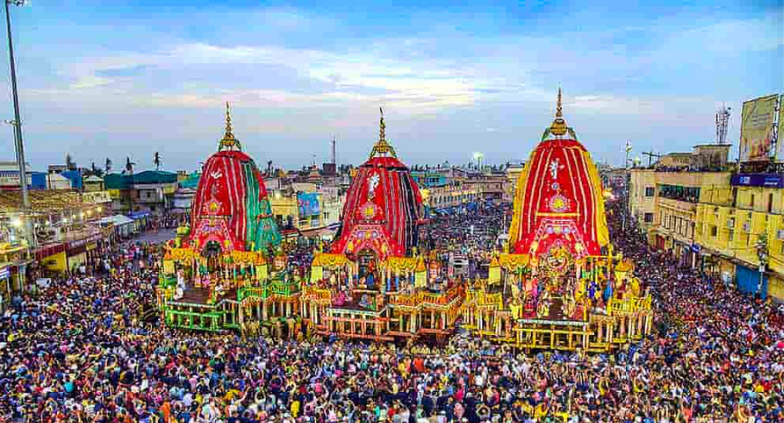Dhauli: Sacred Hillside Marking Ashoka's Transformation
Dhauli, located just 8 kilometers from Bhubaneswar in Odisha, is a significant historical and spiritual destination. This serene hill is believed to be the site of the Kalinga War, where Emperor Ashoka witnessed the horrors of battle and embraced Buddhism. Today, Dhauli symbolizes peace and non-violence, attracting visitors from across the world.
Must-Visit Places:
Shanti Stupa (Peace Pagoda):
Built by the Japan Buddha Sangha and the Kalinga Nippon Buddha Sangha, this white dome structure stands atop the Dhauli hill, symbolizing global peace and Ashoka's transformation.
Ashokan Rock Edicts:
These inscriptions, carved on rock surfaces, reflect Ashoka’s messages of compassion, moral values, and dharma after renouncing violence.
Daya River:
Flowing beside Dhauli Hill, it is believed to have turned red with the blood of thousands during the Kalinga War. The river now flows gently, adding to the site’s tranquil ambiance.
When to Visit:
The best time to visit Dhauli is from October to March, when the climate is cool and comfortable, ideal for sightseeing and exploring the historical surroundings.
Dhauli: Symbol of Peace and Ashoka’s Legacy
Dhauli is a prominent historical and spiritual site near Bhubaneswar in Odisha, known for its deep connection with Emperor Ashoka and the historic Kalinga War. Located on the banks of the Daya River, Dhauli marks the place where Ashoka, moved by the massive bloodshed of the Kalinga War, renounced violence and adopted Buddhism. Today, Dhauli stands as a symbol of peace, compassion, and spiritual awakening.
Besides its historical importance, Dhauli is also a serene destination with scenic landscapes, attracting pilgrims, history enthusiasts, and peace seekers alike. The site includes the iconic Shanti Stupa (Peace Pagoda), Ashokan Rock Edicts, and ancient Buddhist sculptures.
Dhauli is easily accessible by road from Bhubaneswar and Puri, making it a popular stop for tourists exploring Odisha's rich cultural heritage.
Dhauli: Sacred Site of Ashoka’s Peaceful Transformation
Location: 8 km from Bhubaneswar, Odisha
Description: Dhauli is one of the most important historical and spiritual landmarks in Odisha. Situated on the banks of the Daya River, it is believed to be the site of the devastating Kalinga War in the 3rd century BCE. The carnage of this war moved Emperor Ashoka so deeply that he renounced violence and embraced Buddhism. Dhauli marks this powerful transformation and is now a symbol of peace and compassion.
The hill is home to several monuments that reflect this message:
Shanti Stupa (Peace Pagoda):
Description: Built in collaboration with Japanese Buddhists, this large white dome structure radiates tranquility and houses sculptures of Buddha in various poses.
Ashokan Rock Edicts:
Description: These are inscriptions carved into rock, where Emperor Ashoka shares his vision of dharma (moral duty), non-violence, and good governance
Daya River:
Description: Legend says the river turned red with the blood of slain soldiers during the war. Today, it flows quietly beside the hill, enhancing the peaceful atmosphere of Dhauli.
Ideal For:
Description: History lovers, spiritual seekers, and tourists interested in India's Buddhist heritage.
When to Visit:
Description: October to March is the best time to visit Dhauli, with pleasant weather suitable for exploring the hilltop and its surroundings.


.jpg)



.png)
.png)
.png)